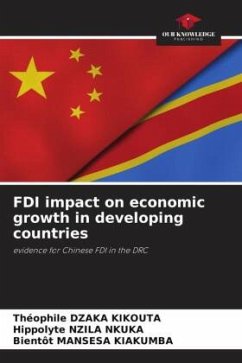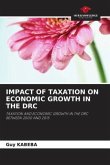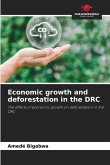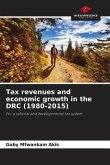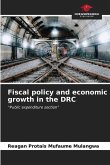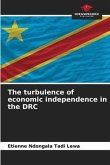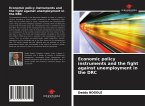The Democratic Republic of Congo (DRC), like most developing countries, is far from achieving economic emergence, but still faces problems in financing its economic activity (trade and balance of payments deficit financing needs, as well as the need to bridge the gap between savings and investment) due to insufficient domestic resources. As recourse to international credit remains constrained and limited by the already worrying level of indebtedness on the one hand, and development aid remains insufficient on the other, foreign direct investment (FDI) presents itself as a non-debt-generating substitute. This study therefore seeks to highlight the impact of Chinese FDI on the DRC's economic growth. To achieve this, we used multiple regression analysis to estimate the model. The results of our study show that inward Chinese FDI in the DRC has a positive but insignificant impact on the recipient country's economic growth.
Bitte wählen Sie Ihr Anliegen aus.
Rechnungen
Retourenschein anfordern
Bestellstatus
Storno

